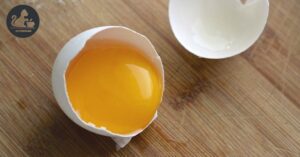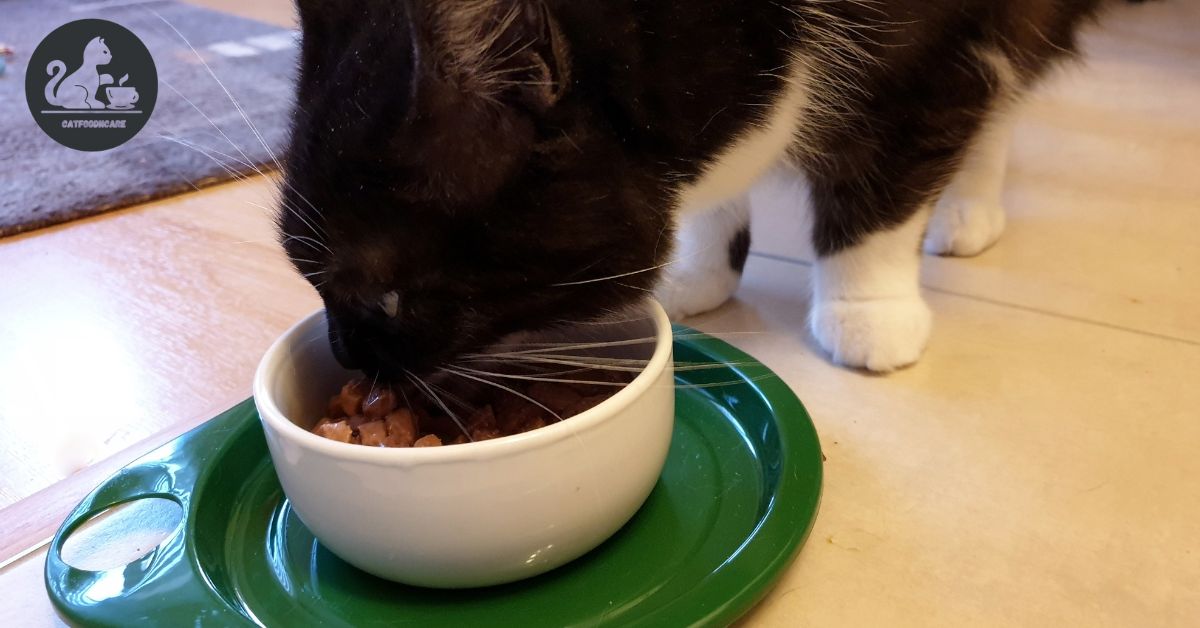Have you ever wondered if your feline friend can enjoy a bit of yolk from your breakfast eggs? As pet parents, we often want to share our favorite foods with our furry companions. However, not all human foods are safe for cats. So, can cats eat yolk? The short answer is yes, but there’s more to it than a simple yes or no.
Egg yolks can be an excellent source of protein and essential amino acids, which are the building blocks of protein. They also contain beneficial nutrients like vitamin B2 and B7, and are a source of calcium. However, raw egg yolks can contain harmful bacteria, so it’s best to cook the yolk before offering it to your cat.
Egg yolks should be given as an occasional treat and not as a primary food source. They should not replace a balanced diet of cat food, which is specially formulated to meet the nutritional needs of cats. Too much yolk can lead to extra calories and increase the fat content in your cat’s diet, which could lead to health conditions like obesity and kidney disease.
Remember, while egg yolks can offer some health benefits, they should not be the sole source of food for your cat. Always consult with a vet for expert advice on your cat’s diet.
What Do Veterinarians Say about Feeding Yolk to Cats?
Veterinarians often get asked if it’s okay to feed egg yolks to cats. The answer is yes, but in moderation. Egg yolks can be a great source of protein for your feline friend. They are an excellent source of essential amino acids, the building blocks of protein. However, they also have a high fat content and can add extra calories to your cat’s diet.

It’s important to remember that while egg yolks can provide some nutritional benefits, they should not replace your cat’s normal food. Cat food is specially formulated to provide a balanced diet. Egg yolks should only be an occasional treat.
Feeding your cat raw egg yolks can pose a risk of food poisoning from harmful bacteria. So, it’s best to cook the yolks first. Also, some cats may have egg allergies, so always introduce new foods slowly and watch for any signs of allergic reactions.
In terms of daily intake, the rule of thumb is to limit treats (including egg yolks) to no more than 10% of your cat’s daily calories. So, if your cat needs 200 calories a day, no more than 20 of those calories should come from treats like egg yolks.
while egg yolks can be a healthy treat for cats, they should not be the sole source of food. Always consult with your vet for expert advice on your cat’s diet.
Can Cats Eat Yolk?
Yes, cats can eat yolk. Egg yolks are an excellent source of protein and essential amino acids, which are the building blocks of protein. These nutrients are vital for your feline friend’s health. However, it’s important to remember that while yolks are a good source of protein, they should not be the sole source of food for your cat.
Egg yolks also contain beneficial nutrients like Vitamin B2 and fatty acids, which can provide health benefits for your cat. But, they also have a high fat content and extra calories. So, it’s best to give egg yolks as an occasional treat rather than a regular part of their diet.
Raw egg yolks can contain harmful bacteria like salmonella, so it’s safest to cook the yolks before feeding them to your cat. Also, some cats may have egg allergies, so it’s a good idea to introduce eggs to cats slowly and watch for any signs of food allergies.
In terms of daily intake, the rule of thumb is to keep treats, including egg yolks, to less than 10% of your cat’s daily calories. Too many extra calories can lead to obesity and other health conditions.
So, while egg yolks can be a healthy treat for your cat, they should not replace a balanced diet of cat food. Always consult with a vet for expert advice on feline nutrition.
Nutritional Benefits of yolk for Cats?
- Egg yolks can be a beneficial addition to your feline friend’s diet. Here are some of the nutritional benefits of yolk for cats:
- Egg yolks are an excellent source of animal protein. Protein is the building blocks of a cat’s body, helping to maintain lean muscle and support a healthy immune system.
- They are rich in essential amino acids, the building blocks of protein, which cats can’t produce on their own
- Yolks are also a good source of Vitamin B2 and Vitamin B7, both of which are beneficial for your cat’s health. Vitamin B2 helps protect cells from radical damage, while Vitamin B7 helps prevent biotin deficiency.
- Egg yolks can provide your cat with extra calories, but it’s important to remember that these should be part of a balanced diet. Too many extra calories can lead to obesity.
- The fat content in yolks is a source of fatty acids, which are essential for maintaining a healthy coat and skin.
- Egg yolks are also a source of calcium, which is important for bone health. However, the rule of thumb is to serve eggs to cats in moderation to avoid potential risks such as food poisoning from harmful bacteria in raw egg yolks.
Remember, while yolks can be a healthy treat, they should not replace your cat’s regular food. Always consult with a vet for expert advice on your cat’s diet.
Potential Health Risks of Feeding Yolk to Cats?
- Feeding yolk to cats can lead to potential health risks.
- Egg yolks are high in fat content, so they can add extra calories to your cat’s diet. This could lead to weight gain and risk of obesity in your feline friend.
- Raw egg yolks can contain harmful bacteria like salmonella, which can cause food poisoning in cats.
- Some cats may have egg allergies, which could lead to gastrointestinal issues if they consume egg yolks.
- Egg yolks are a good source of protein and essential amino acids, but they should not be the sole source of these nutrients in your cat’s diet.
- Over-reliance on yolks can lead to a deficiency in other essential nutrients, which are found in a balanced diet of commercial cat food.
- Egg yolks are also high in Vitamin B7, but consuming too much can lead to a biotin deficiency in cats.
- Feeding your cat too many yolks can also lead to kidney disease due to the high amount of animal protein.
- The rule of thumb is to feed eggs to cats in moderation, as an occasional treat rather than a primary food source.
- Always seek expert advice before introducing new food items like egg yolks into your cat’s normal diet.
How to Feed Yolk to Cats Safely?
Feeding your feline friend egg yolks can be a great source of protein and other essential nutrients. However, it’s important to do so safely to avoid any potential health risks. Here’s a step-by-step guide on how to feed yolk to cats safely.
Step 1: Cook the Egg Yolk
Raw egg yolks can contain harmful bacteria like Salmonella, which can cause food poisoning in cats. Therefore, it’s crucial to cook the egg yolk thoroughly before feeding it to your cat. Boiling or scrambling the egg yolk is a safe way to prepare it. Avoid adding any extra ingredients like salt, pepper, or dairy products, as these can be harmful to cats.
Step 2: Cool the Egg Yolk
After cooking the egg yolk, let it cool down completely before serving it to your cat. Hot food can burn your cat’s mouth and cause discomfort.
Step 3: Portion the Egg Yolk
Cats require a balanced diet, and while egg yolks are an excellent source of protein, they should not be the sole source of food for your cat. As a rule of thumb, treats or human foods should make up no more than 10% of your cat’s daily calorie intake. Therefore, only give your cat a small piece of egg yolk as an occasional treat.
Step 4: Monitor Your Cat
After feeding your cat egg yolk, watch for any signs of food allergies or digestive issues. If your cat shows any signs of discomfort, stop feeding them egg yolk and consult a vet.
Step 5: Store Leftover Egg Yolk Safely
If you have leftover egg yolk, store it in an airtight container in the refrigerator. It’s important to note that egg yolk should be consumed within 24 hours of cooking to avoid the risk of food poisoning.
Step 6: Consult a Vet
Before introducing any new food into your cat’s diet, it’s always a good idea to consult a vet. They can provide expert advice on the nutritional benefits and potential risks of feeding egg yolks to cats.
Remember, while egg yolks can be a healthy treat for cats, they should not replace a balanced cat food diet. Commercial cat foods are formulated to meet all the nutrient requirements of cats, and egg yolks should only be an occasional addition to their regular food.
Conclusion
Cats can eat egg yolks as an occasional treat. Egg yolks are an excellent source of protein and essential amino acids, which are the building blocks of protein. However, they also contain extra calories and fat content, so they should not replace your feline friend’s normal food. Raw egg yolks can contain harmful bacteria, so it’s safer to cook the yolks before feeding them to your cat. Egg yolks also contain beneficial nutrients like Vitamin B2 and B7. However, it’s important to remember that while egg yolks can provide some health benefits, they should not be the sole source of food for your cat. Always consult with a vet for expert advice on your cat’s diet.
Recent Posts
10 Best Canned Cat Foods of 2024, According to Veterinarians
Inside this expert-backed list of 2024's top wet cat foods, discover why veterinarians trust these brands for optimal feline nutrition.
Grab expert insights into the top-rated wet cat foods that veterinarians trust most, and discover why some brands outshine...

